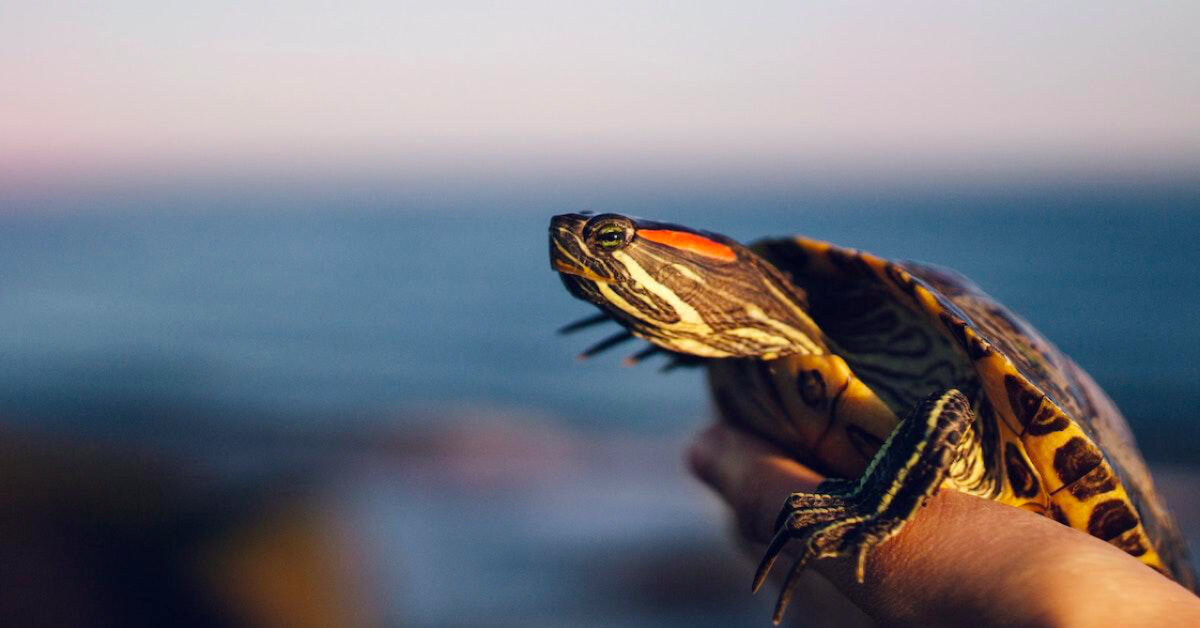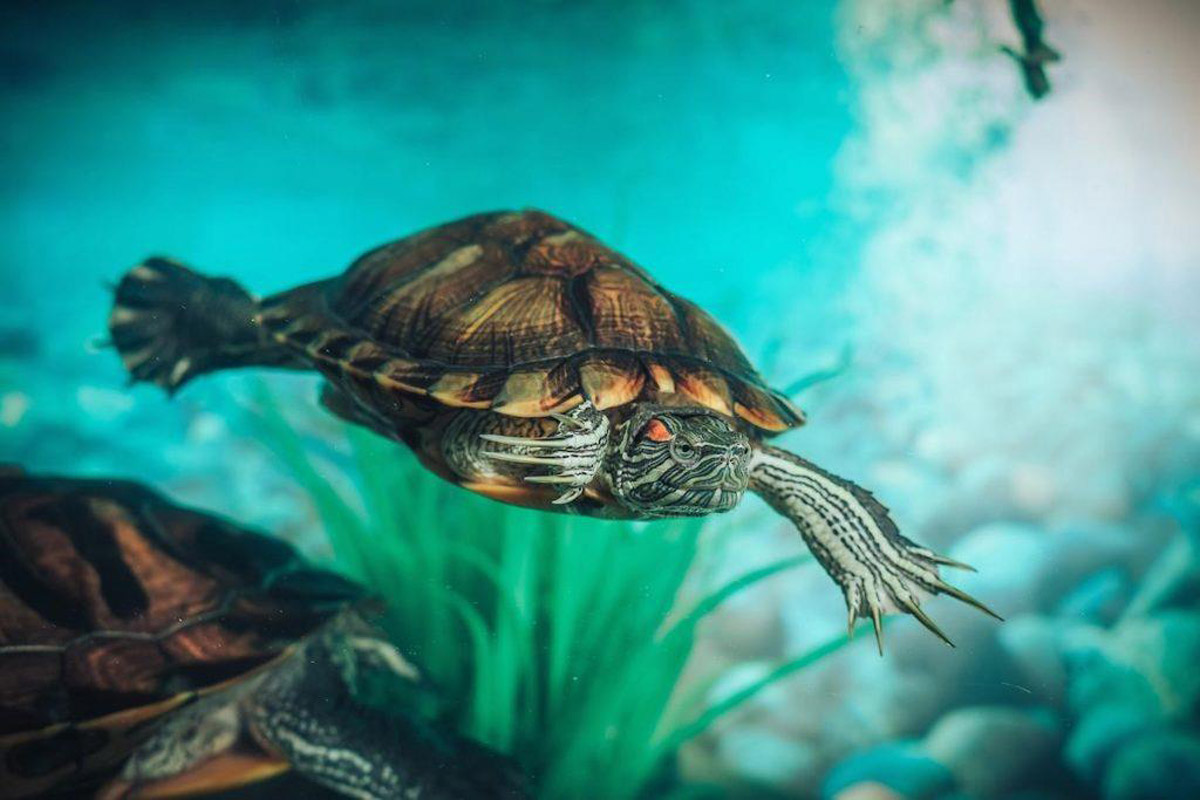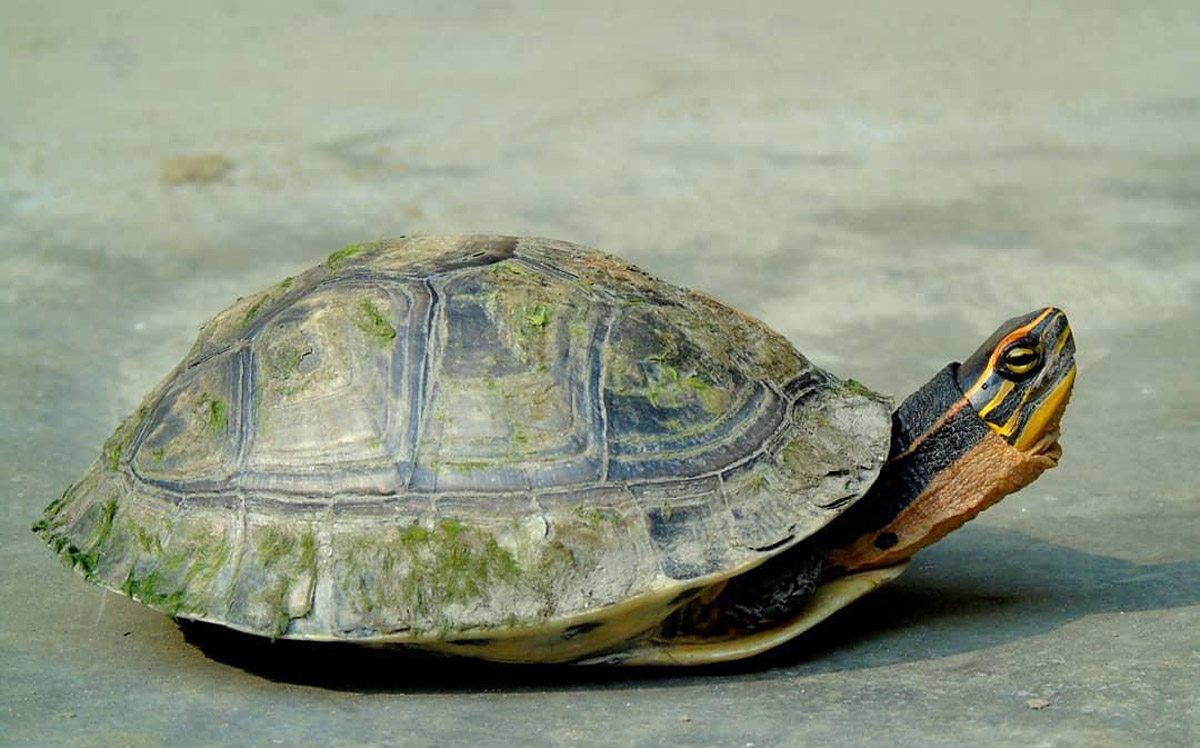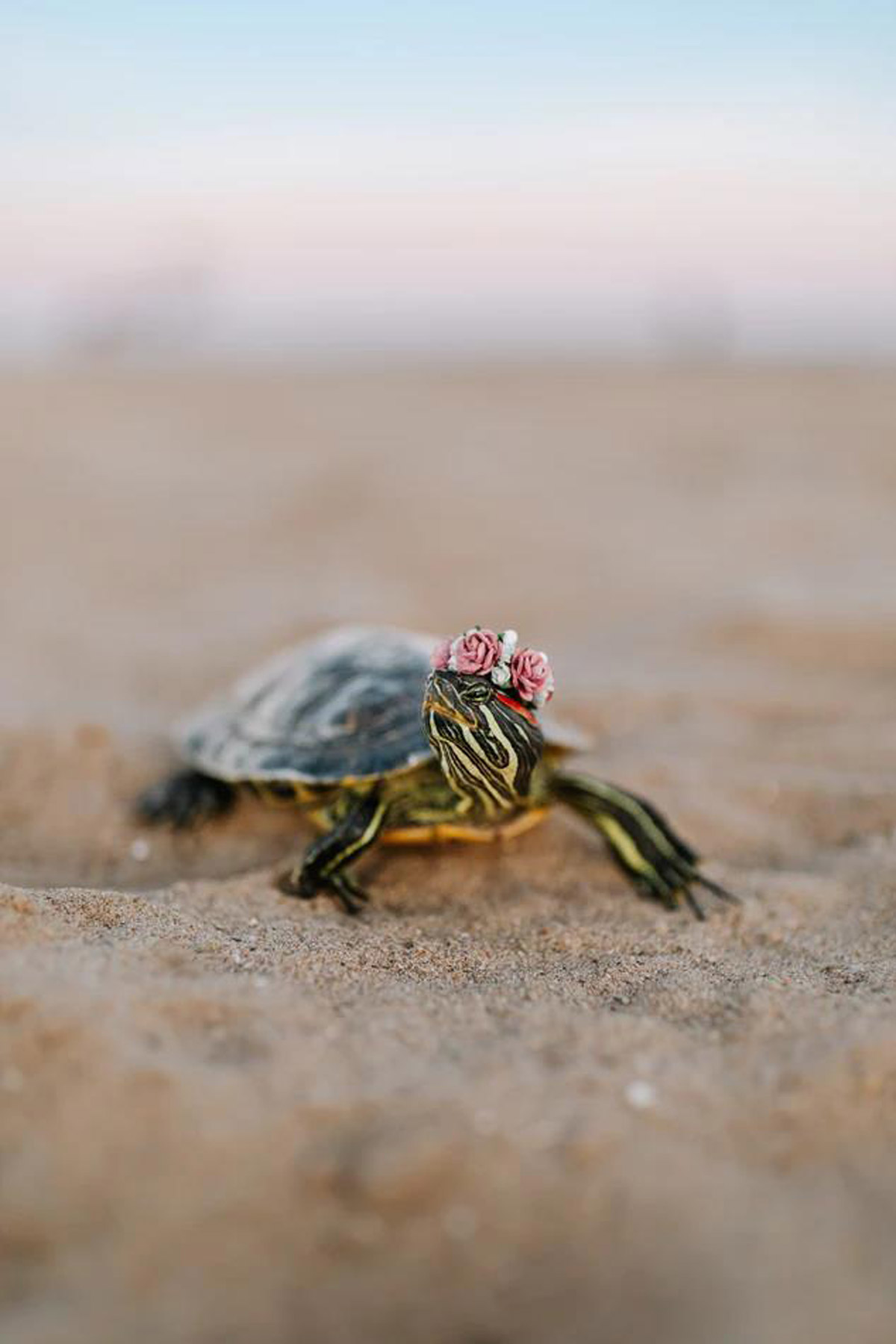Planning to Get A Turtle? Here’s What You Should Know!

Cover image source: Brittney Weng on Unsplash
Turtles are adorable, make great companions, and require less work than keeping dogs and cats. We completely agree with that, but we’re here to bust the myth that all you need to do is to place them in a tank and expect them to be happy and content!
There is more to rearing these shelled friends than most people would know, so have a read through this introductory guide to having turtles and pets before you do your homework and decide if a turtle is really for you!
Note: This article is written with regards to the Red-Eared Slider (Trachemys scripta elegans) and Malayan Box Turtle (Cuora amboinensis), which are the only species permitted to be kept as pets in Singapore.
1. Turtles have needs and likes

A Red-Eared Slider
It’s a misconception that all turtles need is a small tank and nothing else. Red-Eared Sliders and Malayan Box Turtles are aquatic, which means that they require water in their habitat — in fact, they require fairly elaborate housing!
For starters, if you have a Red-Eared Slider, the water level in the tank should be deep enough to allow them to swim about comfortably, along with a place that allows them to get out of the water and bask under a heat light. This is because reptiles cannot regulate their own body temperature, so they must obtain warmth from an external source. On the other hand, if you have a Malayan Box Turtle, it is a poor swimmer so the water should be shallow enough to allow it to stand and breathe air. A dry basking area is also needed.
They also need regular exposure to ultraviolet light or they might suffer from metabolic bone disease (soft shell syndrome), so special light bulbs designed to produce both UVA and UVB light should be fitted in their tanks!
Finally, aquatic turtles tend to be messy, so their tanks should be cleaned often and equipped with a good filtration system to maintain a good water quality and hygiene levels. Aim to replace the water once a week and clean the tank at least twice a month.
2. Turtles can grow bigger than you think

It may come as a surprise, but Red-Eared Sliders can grow up to 10 to 12 inches long while the Malayan box turtle can grow up to about 8 inches long. A large aquarium will be required and can be seen as a good investment, because turtles can enjoy a very long lifespan spanning decades if cared for properly!
3. They can be carriers of salmonella
Interestingly, all breeds of turtles can be carriers of salmonella — a bacteria that is highly toxic to humans. They can carry the bacteria in their stools even though they appear healthy and clean, which will then spread to their bodies, tank water, and habitat.
Always make sure to wash your hands after handling them or coming into contact with their tank, and avoid kissing or snuggling your turtle! It is also unadvisable to let your turtle roam freely in areas where food is prepared or stored, such as the kitchen.
4. Nutrients for turtles

“Mmm… Is this a banana strawberry smoothie bowl?”
Source: Brittney Weng on Unsplash
Most aquatic turtles are omnivores, including the Red-Eared Slider and Malayan Box Turtle. This means that their diet should be made up of a variety of meats, fruits, and vegetables! Commercial turtle pellets can be given as the base of its diet, but try supplementing with healthy treats such as leafy greens, chopped apples, or frozen shrimp and small fishes.
Do take note that because turtles are messy eaters, some owners will feed their turtle outside of their home and in a separate container to keep the tank clean for longer.
P.S. Search for videos of turtles eating on YouTube — it’s so adorable; you won’t regret it!
5. Common health problems

A Malayan Box Turtle
Source: @fttfindia
Just like any other pets, turtles can develop health problems. Among aquatic turtles, shell infections such as shell rot, respiratory infections, internal parasites, and vitamin A and calcium deficiencies are rather common, and will all require specialised veterinary care.

Source: Brittney Weng on Unsplash
Just like any other pet, it’s necessary to be prepared to dedicate a part of your schedule to care for your turtle instead of simply buying them because they look cute and seem fuss-free. These creatures are valuable and wonderful pets, and the quality of their lives depends on your treatment towards them!
For busted myths about turtles, read here.








